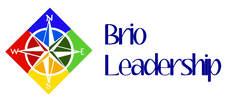 Last week, I flew from Dallas/Fort Worth to St Louis for my nephew’s graduation. I left on Wednesday morning on American Airlines and used a mobile boarding pass. On Saturday, I presciently got to the airport three hours before my departure, hoping to go standby on an earlier flight. However, I couldn’t get a boarding pass; neither the app on my phone nor the kiosk at the airport recognized my record locator. I went to the ticket counter, and discovered that my ticket had been cancelled because American Airlines had no record of me getting on the plane in Dallas/Fort Worth, three days previous. It took a tense hour and numerous calls, on the part of both the ticket agent and me, to help desks across the American Airlines system to get it straightened out. All’s well that ends well though: I got on the flight, albeit in a middle seat in the back of the plane (first world problem, I know) and arrived home safe and sound with only a memory of the anxious hour I spent haggling with the powers that be at American. Now at home, I did two things: first, I sent a letter of appreciation to the ticket agent who helped me. Maybe she wasn’t as savvy as the more experienced agents that she consulted with during the frustrating hour of problem-solving, but he got me home. I wanted to give credit where credit was due. Then I consulted with both my brother and husband about what, if anything, I should do to report the issue to American Airlines, so they can fix the bug in their IT system that caused the problem. Both men told me the same thing: Don’t waste your time complaining to American. And, here’s what my brother added: American Airlines doesn’t care about you. The legacy airlines are monopolies now. Even with the recent video-gone-viral of United Airlines abusing a customer by dragging him off a plane for refusing to give up his seat for a United employee, people will still fly them – because they have no choice! That’s true – at Dallas/Fort Worth airport, American Airlines operates 85% of the flights from DFW, and unless I want to drive 25 minutes further to Love Field in Dallas, headquarters of Southwest Airlines, I have little choice but to fly American. Which got me thinking about competition, customer service and company culture: First, customer service is ALWAYS a reflection of the company culture and how employees are treated by management. Whenever I experience bad service, I always excuse the individual employee and instead blame the culture. An employee’s actions reflect how he or she is treated by management of the organization, which is the de facto indicator of company culture. Next, company culture can be influenced by competition, or the lack thereof. Without competition in the marketplace, companies have no incentive to create a great workplace or treat their employees well. After all, there’s no other company for employees to go! Consumers likewise have little power over the treatment they receive, due to lack of choice. Think government agencies, which have no competition and are not usually thought of as great customer service providers. (Yes, there are some exceptions, and the exceptions point to enlightened management teams.) Remember, the employee’s actions reflect how he or she is treated by management. Therefore, my third point is this: Competition is good for company culture. Without the economic incentive to treat employees and customers well, there is little reason to grow a vibrant company culture. Company culture is a unique selling proposition only when customers have a choice. When there is no competition, customer service falls to the least common denominator. In the end, this is an article in praise of competition and ultimately, capitalism. The largest engine of growth and influence in the world is business. Capitalism is powered by competition, which is a force that motivates continual improvement. However, the rise of crony capitalism, which corrupted capitalism’s original intent, must be replaced by Conscious Capitalism, which espouses elevating humanity through business. Competition, customer service and company culture are all inextricably linked. Kristin Robertson, CEO of Brio Leadership, is dedicated to increasing the number of employees who are excited to go to work on Monday mornings. Services include executive coaching, leadership development classes and company culture consulting. Don’t forget to get a copy of Kristin Robertson’s new book, Your Company Culture Ecosystem, available on Amazon.
0 Comments
Leave a Reply. |
From the desk of
|
Our services |
Our Company |

 RSS Feed
RSS Feed

